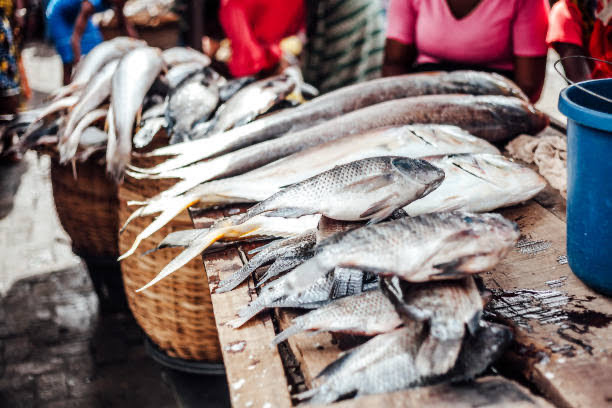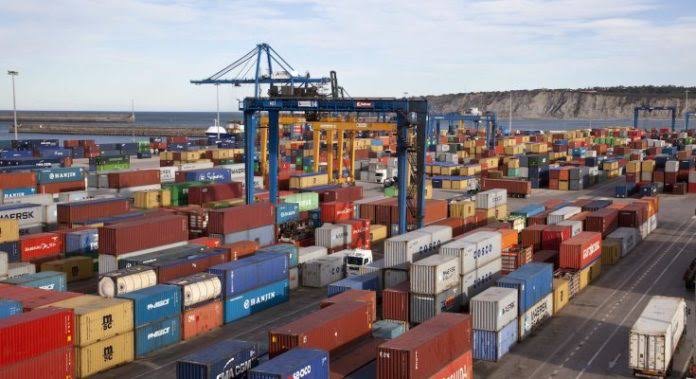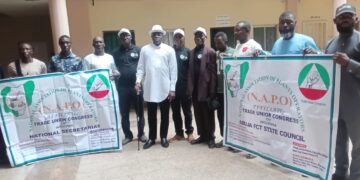Nigeria is currently on the brink of a looming fish shortage as a result of importers abandoning their fish consignments at the Lagos seaports. This abandonment stems from the surging cost associated with importing fish, which have been exacerbated by the nation’s ongoing foreign exchange crisis. Industry stakeholders have raised concerns about this growing issue, warning that it could worsen food insecurity across the country.
Vicky Haastrup, the Chairman of the Seaport Terminal Operators of Nigeria (STOAN) and CEO of ENL Consortium has voiced her apprehension about the situation. She recently highlighted the risk of an imminent fish scarcity during the 2024 SCAN Dockworkers’ Day event held in Lagos.

According to Haastrup, this month will see a complete absence of incoming fish vessels at the seaports, a dramatic departure from the typical regular arrivals seen in previous months.
“Nigerians are passing through a very difficult phase right now, economically,” Haastrup stated. She explained that the abandonment of fish consignments is primarily due to the increasingly high cost of conducting business in Nigeria, which has been worsened by the depreciation of the naira and the sharp rise in port-related fees. “The cost of fish has become prohibitively expensive for many Nigerians, and the ongoing forex crisis has only made matters worse,” she added.
Haastrup went on to explain that this economic hardship has directly impacted Nigerians’ purchasing power, particularly when it comes to fish, a staple food for many households. The combination of rising costs and dwindling consumer demand has created a troubling situation for importers, many of whom now face the challenge of offloading their costly fish consignments. As a result, a surplus of fish has accumulated in cold storage facilities across Lagos, with fewer and fewer buyers willing or able to pay the inflated prices.

“As I’m talking today, we are not expecting any fish vessels at ENL. A lot of fish vessels used to call at ENL regularly, but now we aren’t expecting any throughout this month,” Haastrup lamented. “This is because fish has become very expensive for Nigerians.”
The ripple effects of this situation are far-reaching. Fish, which is a major source of protein for many Nigerians, especially those from lower-income households, is becoming increasingly inaccessible.
If the issue persists, it could pose a significant threat to food security, making it difficult for people to obtain one of the most affordable sources of nutrition. Haastrup emphasized that urgent action is required to prevent this potential crisis from escalating further.
“There should be some kind of intervention on the part of the government, particularly on critical items like fish, which is very important for our children’s growth,” she emphasized.
While Haastrup acknowledged that the federal government has taken steps to alleviate the burden by reducing taxes on some commodities, she pointed out that the ongoing foreign exchange crisis remains a major obstacle.
The forex issue has not only driven up costs but also created uncertainty for businesses and importers alike, leaving the future of Nigeria’s fish supply in question.
The situation demands swift government action, particularly in the form of targeted interventions aimed at stabilizing critical food imports like fish. Without such measures, the economic strain will likely continue, further eroding the purchasing power of the Nigerian population and worsening the country’s food insecurity challenges.



































